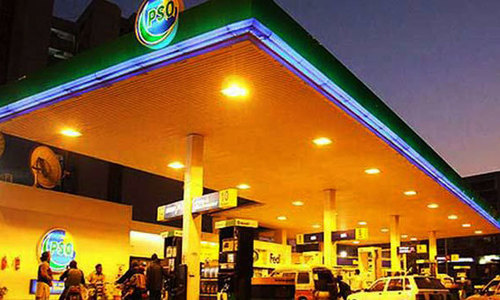ISLAMABAD: The Oil & Gas Regulatory Authority (Ogra) on Wednesday notified average sale price for Regasified-Liquefied Natural Gas (RLNG) for November at about $15.68 per million British thermal unit (mmBtu) which is almost 105 per cent higher than the same month last year and a fraction lower than October this year.
The notification showed that major increase was due to expensive spot cargoes of Pakistan LNG Limited (PLL) which purchased only two cargoes for November but this shot up the average basket RLNG prices. The price notification showed the country would have a total of 10 cargoes for November instead of usual 11-12 cargoes.
The notification showed the average import price delivered ex-ship of PLL at $24.1 per mmBtu was almost 327pc higher than $5.64 per mmBtu of same month of last year. This also included the most expensive cargo in Pakistan’s history at $30.6 per mmBtu arranged by PLL through emergency tender a few days ago after long-term contractors defaulted.
Country to have 10 cargoes this month instead of the usual 11 or 12
The only saving grace for the government was significantly cheaper long-term contracts from Qatar. The RLNG for eight cargoes of Pakistan State Oil (PSO) had been secured at almost half the average sale price of $9.68 per mmBtu. These included six cargoes from Qatar at a DES price of $10.207 on the basis of 13.37pc of Brent and two cargoes at $7.887 per mmBtu based on 10.2pc of Brent under second term contract.
The data showed that even PSO’s imports this year were almost 66pc higher than same month of last year when its average imports including spot cargoes were priced at $5.83 per mmBtu.
Overall, the average RLNG price (including both PSO and PLL) for November worked out at $15.68 this year against just $7.66 per mmBtu in November 2020.
This was despite the fact that PLL’s portfolio included only two cargoes instead of at least six required for winter peak demand. Besides the most expensive cargo of $30.65 per mmBtu, PLL’s second cargo was also imported at DES price of $17.54 per mmBtu.
The regulator kept the allowance for system losses unchanged at 6.68pc for Sui Northern Gas Pipelines Limited and 6.42pc for Sui Southern Gas Company Limited which the two companies had challenged in various courts including the Lahore and Islamabad High Courts.
Besides system losses, PSO and PLL also charge retainage at the rate of 0.72pc and 0.5pc, respectively, of cargo price in addition to 2.5pc of import margins.
It may be recalled that a default by two long term suppliers – ENI of Italy and commodity trader Gunvor — had created sudden gas shortages and the government had to go for emergency bidding for two replacement cargoes.
By the deadline, the PLL received a total of five bids from three bidders for two cargoes.
For November 19-20 delivery window, Vitol Bahrain was evaluated by the PLL as the lowest bidder at $29.8966 per mmBtu followed by $30.65 per mmBtu of Qatar Petroleum Trading for November 26-27 window. The government then accepted only second cargo for second half of current month.
The PLL is also facing a supply shortfall of about 385 million cubic feet per day (mmcfd) in December and 240 to 275 mmcfd in January and February following non-availability of LNG cargoes amid historically high international market. It had sought bids from the private sector parties to use this surplus capacity for which it could not arrange its own cargoes.
The long-term supply contractors Gunvor and ENI had backed out of their commitments as global prices went up.
The traders chose to pay the penalty for default and go for higher profits in spot market. ENI has a 15-year contract with PLL at 11.95pc of Brent while Gunvor had five-year contract at 11.63pc of Brent. The spot rates are now exceeding 35pc of Brent.
Published in Dawn, November 11th, 2021















































